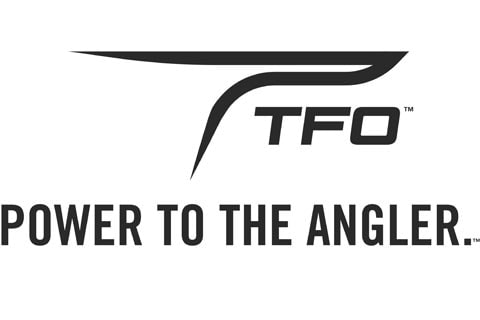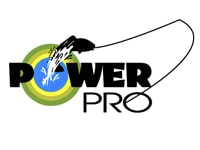|
If you have fished Peacock Bass in Brazil’s Amazon before you most probably have flown into Barcelos and experienced the myriad of mother boats on the wharf waiting for their clients to arrive and then all trying to beat each other upriver to the most ideal fishing grounds. The first two days of the trip anglers are relegated to heavily fished areas visited by all the mother boat operations trying to get upriver away from the others. Days 3 & 4 you will experience decent fishing as the mother boats disperse. Then on day 5 the mother boats will begin to head back to Barcelos and days 6 and 7 you will be in the heavily fished areas near town again. As Barcelos is the only city on the upper Rio Negro with sufficient resources for the mother boats to resupply with fuel & food, all 30+ mother boats able to handle from 8 – 24 anglers/week fishing the Rio Negro are relegated to fishing this same circuit for 6 consecutive months. The other option, if you want to enjoy the true remote Peacock Bass fishing adventure you really traveled to Brazil’s Amazon for, is River Plate’s concept of flying from Manaus, your port of entry into Brazil, directly to our floating mobile Safari Camps on secluded black water tributaries in all 4 dry zones from late July to mid March. River Plate Anglers is the only outfitter fishing Brazil’s Amazon that offers Peacock Bass fishing trips on waters they have leased exclusive entry from the Indigenous peoples living on these black water tributaries to the Rio Negro, the Rio Branco and Rio Madeira Rivers. Fly by Caravan charter plane directly to your camp by float plane or to a jungle airstrip near your Safari Camp and be fishing in prime waters the first afternoon of your trip where you will see no other anglers except your group. You can expect to catch 20 – 40 Peacocks per day, better than double what you could expect to catch in the heavily fished areas of the main river and BIG Peacocks are readily available. This is not one of the many yacht trips that offers fishing in Brazil’s Amazon, this is a true Peacock Bass fishing trip that offers upscale accommodations, food, guides, equipment and services! Our single occupancy Safari Camps will accommodate only 6 anglers per week in 250 sq ft air-conditioned single occupancy cabins, featuring queen beds and private bathrooms and showers. There is no need to spend the week with 20 of your best friends you’ve never met; experience the Amazon the way you dreamed, away from the crowds! Spend the evenings after a days fishing enjoying the sights and sounds of the rain forest on a secluded sand bar the way the Portuguese did 400 years ago when they first explored the Amazon River Basin. Enjoy daily maid and laundry service, upscale meals with a Brazilian flair, all adult beverages, bottled water and soft drinks. We utilize custom built 21’ fully equipped bass boats especially designed and built in Brazil for fishing these black water tributaries. The big, wide & heavy American style bass boats are necessary to safely navigate the big waters of the main river channels, but limit mobility when trying to access the backwater lakes and lagoons where the trophy Peacocks like to hang out. Our guides grew up on these tributaries & know the river and the Peacock Bass like no other. Custom TFO bait casting, spinning and fly rods equipped with TFO fly reels & Shimano bait casting and spinning reels are available at camp for your use at no additional cost. All lures and baits, including flies, are also furnished at no additional cost for our anglers. Upon arrival at your Safari Camp is not the time to discover you have not brought the proper lures or fishing tackle. Be aware when you talk to any outfitter, the sign of a first class trip is one offering all the lures & tackle especially tailored to your trip, at no additional cost! Come enjoy the remote Amazon Peacock Bass fishing trip anglers enjoyed in the 1990’s when Peacock Bass fishing was the fishing adventure of the mystic Amazon. FISH WITH THE BEST AWAY FROM THE REST!
Fishing Brazil’s Amazon Since 1992! www.peacock-bass-fishing.com [email protected] 817.946.2479
1 Comment
Rick Pope, founder of Temple Fork Outfitters rod company tells the story of a Peacock Bass spooling his bait casting reel not once, but twice in a 5 minute period while fishing in Brazil’s Amazon a couple of years ago.
“We were making the transition from one lagoon we had been fly fishing in to another thru a long inlet which we could not fly fish in. Our guide “Blackie” suggested we troll with our bait casting gear thru the inlet that was a couple of hundred yards long. I picked up my casting rig with a Shimano 200 Calcutta loaded with 65 lb test braid and a ½ oz jig and managed to make much too long a cast, nearly empting the spool on the reel. No sooner had the jig hit the water than I had a hook up with a good Peacock and the reel began to whine. As Blackie had the boat going at 5 or 6 knots, before he could get the boat turned around the Peacock Bass has emptied the line off the reel and bang I’m spooled & the line is gone! Blackie calmly backs up and seeing the braid floating, he turns around & picks it up as when the pressure on the line ceased, the Peacock stopped running. My fishing partner Ken Wellams and I realize that maybe we can salvage this situation. We take the line and begin to thread it thru the tip of the rod and back thru the guides. While trying to tie an arbor knot on the spool the fish feels a little pressure and surges… out goes the line thru the rod guides and off again. Blackie gets us over to the line again a second time and Ken picks it up and gently pulls in about 15’ of line as the guide moves the boat forward. Handing the line to me again, Ken puts a rag around his hand and wraps the line securely around his hand to theoretically fight the fish if it surges again. Blackie and I were able to get the line fed back thru the guides, thru the level wind eye of the reel and an arbor knot tied on the spool, we are suddenly back in business. I started cranking. Wellams and I were thinking this is going to be the first 30 lb Peacock Bass caught on the upper Rio Negro. The Peacock Bass on the end of the line weighted 15 lbs on the Boga when we landed it. It was about 10 minutes of shock, horror, thrill & excitement…it was wonderful!” Rick Pope, founder Temple Fork Outfitters April, 2016 Jacunda (Crenicichla marmorata) is a very interesting member of the Cichlid family of fishes of which the Peacock Bass is the largest & best known. Commonly known as a Rainbow Bass to American Anglers due to its vivid colors, it is not to be confused with the Guapote of Central America also referred to as the “Rainbow Bass". Jacunda, seldom weighing more than a couple of pounds, exist in several different color phases depending upon which stage of the spawning cycle they are in. The first Jacunda I ever saw was caught by a fly fishierman n a shallow lagoon off the Rio Negro River in Brazil’s Amazon and was sporting its normal green and yellow with multiple black bars down its flanks with a beautiful red “ocular spot” just behind its pectoral fins. The second Jacunda we caught in the same lagoon a few minutes later was only about 10 inches long but sported an almost florescent red translucent body as it was deep into it’s spawning colorization. It was stunning to say the least. Over the last 15 years I have caught Jacunda in many different phases between their normal non-spawning color phase and this translucent red spawning coloration. These colorful fish, like all members of the Cichlid family of fishes, are formidable predators, feeding on aquatic insects, small fish and plant material. Most often Jacunda are caught on flies and jigs, incidental to Peacock Bass fishing and thus on pretty heavy tackle which doesn’t allow the fish to show its fighting ability. Found mostly in small streams and shallow bays off the main river channels, they will give a good account of themselves if pursued with light spinning tackle or a 4 or 5 wt fly rod, readily striking small flies and jigs. Jacunda can be caught in their vivid red spawning coloration from late September through late November in northern Brazil’s Amazon.
When Peacock Bass fishing was “introduced” to the sport fisherman in the early 1990’s by River Plate Anglers and the now defunct Amazon Tours, there were really only 5 recognized species of Peacock Bass. After extensive research completed in 2006, ichthyologists increased the number of identified species of Peacock Bass to 15 in South America. Presently IGFA (International Game Fish Association) has World Record listings for 12 different species of Peacock Bass. George Walters, fishing with River Plate Anglers floating Safari Camps in Brazil’s Amazon in February of 2010, caught & currently holds the only IGFA World Record Peacock Bass of any species, all tackle or fly line tippet class, of any current outfitter in Brazil's Amazon. This 16.1 lb IGFA All Tackle World Record Orinoco Peacock Bass, Cichla orinocensis, was caught on the Urubaxi River, a tributary to the Rio Negro. chttp://wrec.igfa.org/WRecordsList.aspx?lc=AllTackle&cn=Peacock,%20Orinoco Several World Record Speckled Peacock Bass, Cichla temensis, have been caught over the years by Amazon outfitters, both on fly and conventional tackle, but they have all been surpassed by the monster 29 lb 1 oz monster caught in November of 2010 by Brazilian Angler Andrea Zaccherini fishing out of Santa Isabel Do Rio Negro. Find accurate information on IGFA World Records at http://wrec.igfa.org/WRecordsList.aspx?lc=AllTackle&cn=Peacock,+speckled FISH WITH THE BEST AWAY FROM THE REST! www.peacock-bass-fishing.com
|
Categories
All
AuthorJim Kern has a long history in the Peacock Bass world. Jim has fished in Brazil 32 times since 1997 with both fly and conventional tackle. Jim developed and ran the American office for Captain Peacock from 2010 thru 2013 was the Vice President and General Manager of Amazon Tours from 1998 thru 2003. Through Emu Outfitting, his outfitting company of 30 years, he managed Alaska’s Rainbow Bay Resort from 2007-2009 & Alaska’s Angry Eagle Lodge 2013 & 2014. Jim holds a Coast Guard Captains license, has been a registered fishing guide in Alaska, Montana and Idaho and has been a fly tier for 40 years. Jim also was a 3 time American League All Star baseball pitcher in 1977, 78, and 79 & the American League Relief Pitcher of the year in 1979. Archives
October 2018
|
Let's Talk Peacocks 817.455.5374
Location |
|
















 RSS Feed
RSS Feed






